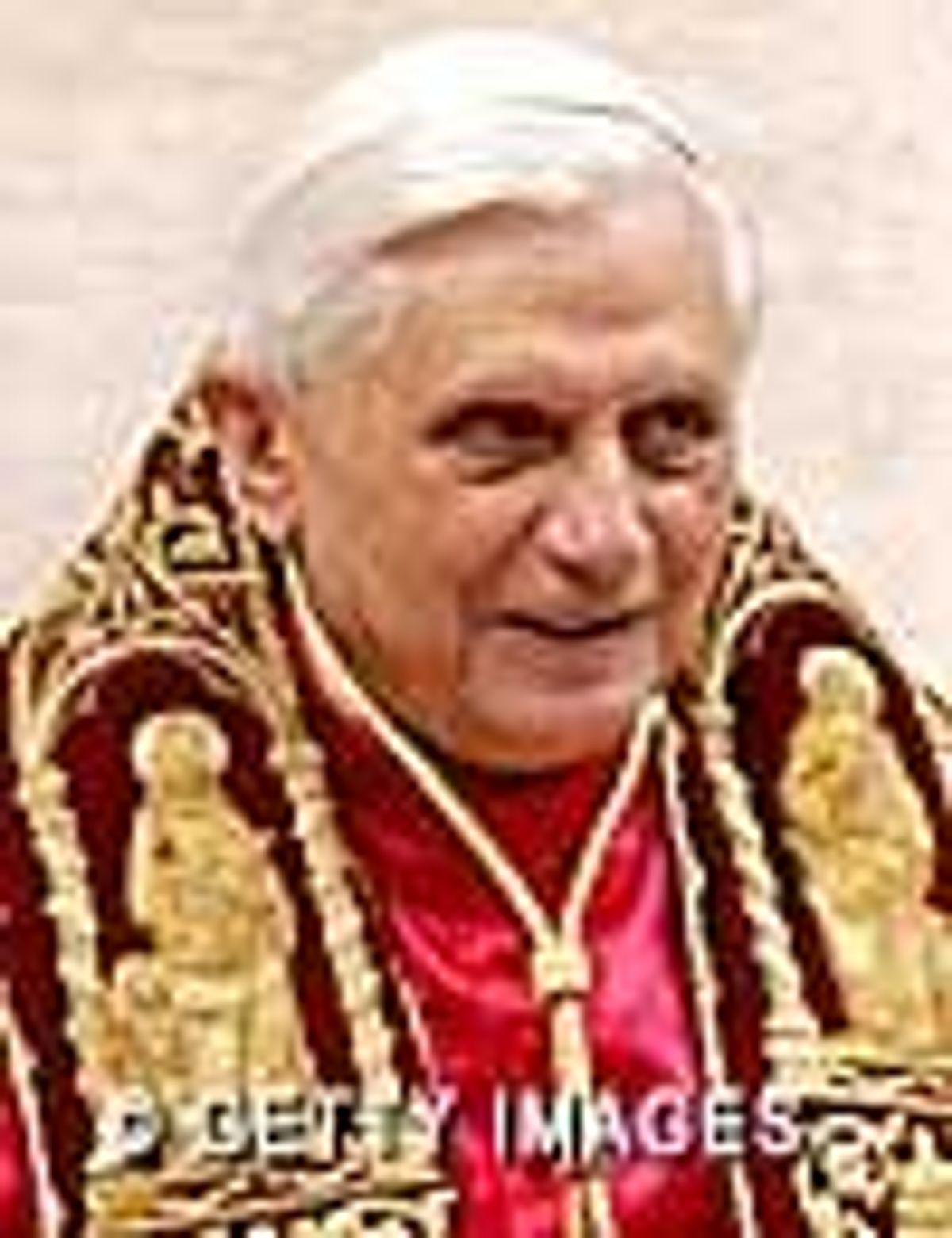For more than
four decades the Roman Catholic Church has followed its
rules concerning gay priests while recognizing the reality
of their presence. But the Vatican--as far back
as 1961--has made it clear they are not wanted.
Many seminaries, however, continued to tolerate what
one conservative theologian calls a "lavender
subculture" that has brought perhaps thousands of gay
men to ordination. Now those parallel worlds are
headed for a collision.
The Vatican is putting the finishing touches on
a document that strengthens its view that gay
orientation and the priesthood are essentially
incompatible. But the text--which could be released as
early as next month--reportedly will not impose
a blanket ban on gay priests. Instead, it may demand
years of chastity before entering a seminary and
prohibit any public acts deemed to support the sexually
active gay community.
If true, the Congregation for Catholic Education
will be bolstering existing Vatican positions rather
than shutting the door completely on gay clerics, as
many liberal Catholics have feared it might. The question
then becomes: What message is the Vatican hoping to send?
Many experts in church policies don't expect
widespread purges of gay clerics from parishes,
schools, and seminaries. Many places--particularly
in Europe and the United States--are suffering under
priest shortages and can't risk further losses.
What's more likely, they say, is that bishops
will gain new leverage to dismiss or sideline
clergymen considered in open defiance of the document.
Also, the Vatican statement may serve as a foundation for
much more intensive screening of seminary candidates
to try to identify--and possibly reject or
discourage--those who are gay.
"It could end up restricting entry into the
priesthood to heterosexuals, which is a de facto
extension of the existing teachings," said R. Scott
Appleby, a professor of religious history at the
University of Notre Dame. "Even worse, it would place
homosexuals into the position of hiding their orientation,
lying and suppressing their identity, or not entering
the church."
Even some conservative Catholics wonder whether
the church could become bogged down in internal
contradictions from its own rules: If a priest remains
celibate and loyal to other Catholic tenets, why does his
sexual orientation matter?
"This is where it gets very tricky," said the
Reverend Richard John Neuhaus, editor of the New York
City-based religious and public affairs journal
First Things. He sees the upcoming document
as an attempt to curb "a growing influence of gay
lifestyles, or what's been called a lavender subculture" in
seminaries and other church institutions.
But this can indirectly strike at one of the
core elements of the Catholic priesthood--the
belief that the call for a vocation can come to
anyone. Estimates of the number of gays in U.S. seminaries
and the priesthood range from 25% to 50%, according to
the Reverend Donald Cozzens, a former seminary rector
and author of The Changing Face of the Priesthood.
Credible global statistics are not available.
"There can be little doubt that over the
centuries there have been great priests,
bishops--and maybe even popes--who by today's
criterion would be deemed homosexual in orientation,"
Neuhaus said. "It's not the nature of one's
temptations--be they sexual or something
else--it's how to deal with these temptations."
No place is this more an issue for church
leaders than in the United States, where the nation's
bishops were launching a new campaign Friday to
attract seminarians. The sex abuse scandals have forced the
church to undertake unprecedented introspection
over its clergy and how to train future priests.
In September, Vatican-directed inspectors
started visiting all 229 American seminaries. Part of
their mission is to seek any "evidence of
homosexuality" at a time when some Catholics have put
forward the highly contested premise that gay priests
are more likely to be responsible for criminal
behavior such as serial same-sex molestations.
Archbishop Edwin O'Brien, who leads the U.S.
military archdiocese and is coordinating the seminary
evaluations, strongly opposes any openings for gays in
the priesthood. But apparently the document will offer some
avenues--however narrow--for gay priests.
Earlier this month a senior Vatican official said the
document may allow gay men into seminaries if they
have lived a chaste life for at least three years. Other
possible stipulations reportedly being discussed
include forbidding gay seminarians or priests from
making public comments or participating in acts that
would draw attention to their sexual orientation.
Bishop William Skylstad, president of the U.S.
Conference of Catholic Bishops, said that he is
heartened by reports indicating that the document may
be "much more nuanced" and "far more sensible" than an
outright ban.
The Vatican has often visited the issue of
homosexuality, reflecting an unbending theological
opposition but also an acknowledgment that
discrimination based on sexual preference is not justified.
A key document from 1961 said gays should be barred
from the priesthood. In 2003 homosexuality was
described as a "troubling moral and social phenomenon"
in a document by the powerful Congregation for the
Doctrine of the Faith, then headed by German cardinal Joseph
Ratzinger, who became Pope Benedict XVI this year.
Vatican teaching also holds that gays are
"intrinsically disordered." The church, however, says
gays and lesbians should be treated with compassion
and dignity.
Declining vocations and relaxing the rules on
priestly celibacy are among the main topics among 250
bishops and other prelates from around the world
gathered at the Vatican to examine various aspects of the
Catholic Mass and make recommendations to the pope.
The three-week meeting wraps up October 23.
But synod
participants say the document on gay priests has barely been
mentioned, reflecting the imbalance between the intense
interest in the United States and limited impact in
other regions. "In the synod, nobody is talking about
that," said the Reverend Josep Maria Abella Battle,
superior general of the Missionary Sons of the Immaculate
Heart of Mary. "I know in America there is a lot of
worry." (AP)


















































































